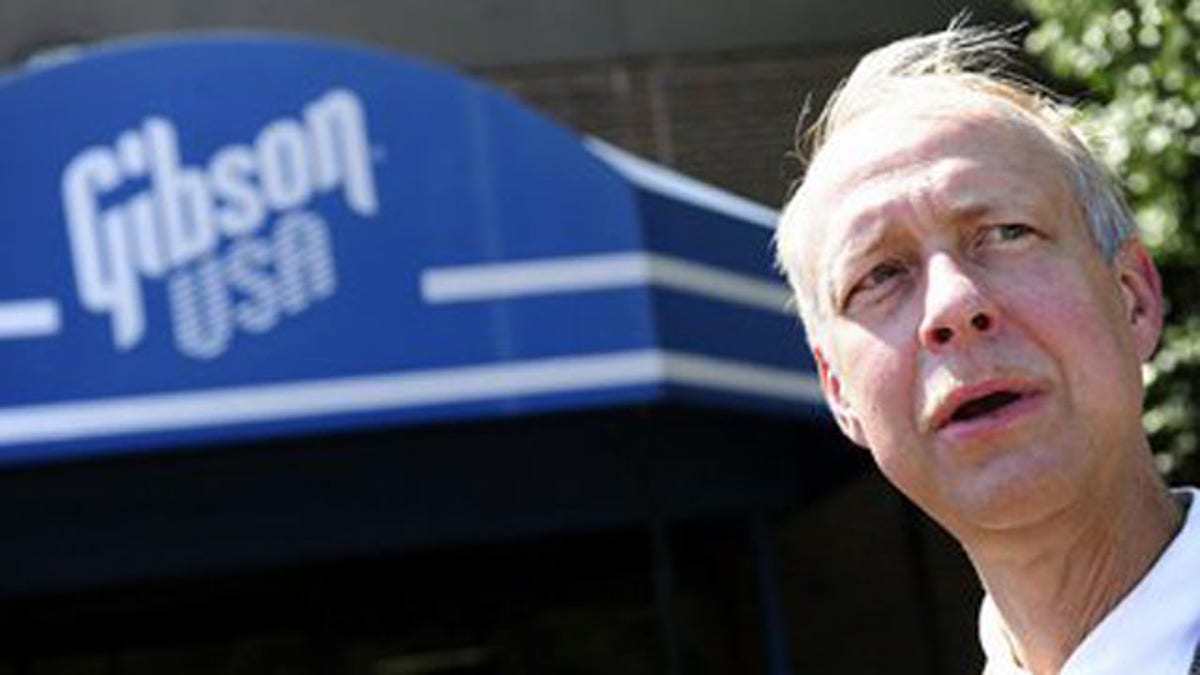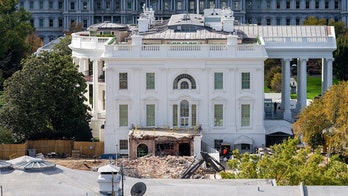
Gibson CEO Henry Juszkiewicz discusses the federal raid on his company's facilities Aug. 25, 2011 in Nashville, Tenn. (AP)
Gibson Guitar Corp. is claiming the Obama administration wants more of its woodwork done overseas, as a bizarre battle heats up between the government and one of the country's most renowned guitar makers.
The dispute started in 2009, when federal agents raided the company over suspect wood shipments from Madagascar. Gibson took that case to court but has denounced the administration with a vengeance after agents returned late last month to raid several Gibson factories -- this time out of concern that Indian export laws had been violated.
Though some reports on the dispute have cited environmental concerns, court documents suggest the latest battle boils down to a simple, non-environmental question -- which country is working on the wood?
Gibson's CEO has said repeatedly that the only reason his company is in trouble is because U.S. workers are completing work on guitar fingerboards in the United States. In an interview earlier this week, CEO Henry Juszkiewicz claimed that the U.S. government even suggested Gibson's troubles would disappear if the company used foreign labor.
The Justice Department is hamstrung from talking about the case because it's an ongoing investigation. Justice spokesman Wyn Hornbuckle told FoxNews.com only that agents were looking for evidence of "possible violations" of a law governing imports of plants and wildlife.
Hornbuckle also confirmed that no charges have yet been filed in either of the two cases.
Court documents help explain the root of the tree dispute. According to search warrants associated with the latest raid, federal agents in June intercepted a shipment of Indian ebony apparently bound for Gibson in Tennessee. The documents noted that Indian law "prohibits the export of sawn wood," which can be used for fingerboards -- but does not prohibit the export of "veneers," which are sheets of woods that have already been worked on.
The search warrants alleged that the intercepted shipment was "falsely declared" as veneer, something that would have been legal. However, the documents said the ebony was in fact unfinished "sawn wood," supposedly illegal.
This led to the raid on Gibson facilities late last month.
Juszkiewicz said in a statement that the U.S. government has effectively suggested "that the use of wood from India that is not finished by Indian workers is illegal, not because of U.S. law, but because it is the Justice Department's interpretation of a law in India."
A representative at the Indian Embassy in Washington could not be reached for comment.
But Juszkiewicz has since claimed that his company's wood exports do in fact comply with Indian law, even if American workers are doing some of the work.
In an interview on the company website, Juszkiewicz said Gibson "for decades" has purchased fingerboard wood that is two-thirds finished.
"The fact that American workers are completing the work in the United States makes it illegal," he said, citing the government's position.
Juszkiewicz maintains Gibson is still complying with the law.
























